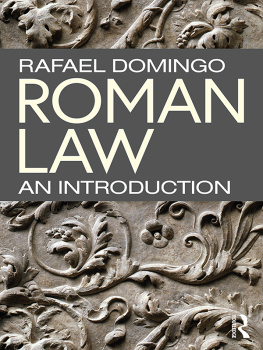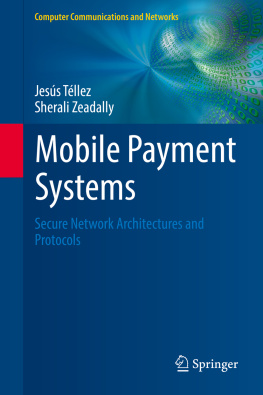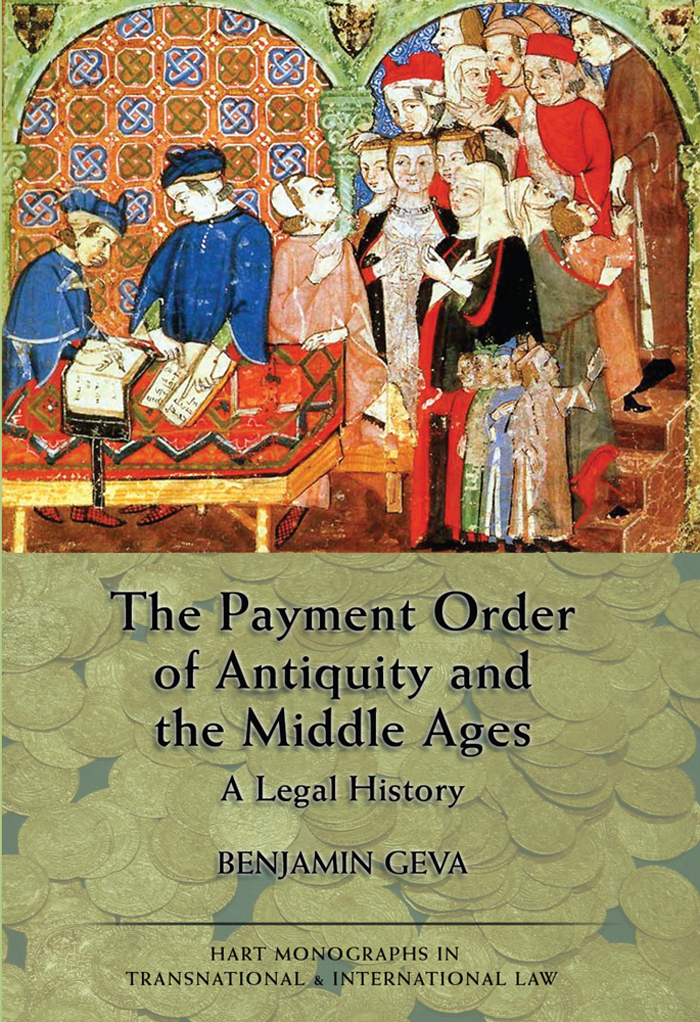THE PAYMENT ORDER OF ANTIQUITY AND THE MIDDLE AGES
Examining the legal history of the order to pay money initiating a funds transfer, the author tracks basic principles of modern law to those that governed the payment order of Antiquity and the Middle Ages. Exploring the legal nature of the payment order and its underpinning in light of contemporary institutions and payment mechanisms, the book traces the evolution of money, payment mechanisms and the law that governs them, from developments in Ancient Mesopotamia, Ancient Greece, Rome, and Greco-Roman Egypt, through Medieval Europe and post-Medieval England. Doctrine is examined in Jewish, Islamic, Roman, common and civil laws.
Investigating such diverse legal systems and doctrines at the intersection of laws governing bank deposits, obligations, the assignment of debts, and negotiable instruments, the author identifies the common denominator for the evolving legal principles and speculates on possible reciprocity. At the same time he challenges the idea of law merchant as a mercantile creation.
The book provides an account of the evolution of payment law as a distinct cohesive body of legal doctrine applicable to funds transfers. It shows how principles of law developed in tandem with the evolution of banking and in response to changing circumstances and proposes a redefinition of law merchant.
The author points to deposit banking and emerging technologies as embodying a great potential for future non-cash payment system growth. However, he recommends caution in predicting both the future of deposit banking and the overall impact of technology. At the same time he expresses confidence in the durability of legal doctrine to continue to evolve and accommodate future payment system developments.
Hart Monographs in Transnational and International Law: Volume 6
Hart Monographs in Transnational and International Law
Series Editor: Craig Scott, Professor of Law, Osgoode Hall Law School of York University, Toronto
The objective of this series is to publish high-quality scholarship in public international law and private international law, as well as work that adopts transnational law as its thematic, theoretical or doctrinal focus. The series strives to be a leading venue for work of the following sort:
* critical reappraisals of foundational concepts and core doctrinal principles of both public and private international law, and their operation in practice, including insights drawn from general legal theory;
* analysis and development of conceptions of transnational law, including in relation to the role of unofficial law and informal processes in transnational regulation and in relation to theories and studies of governance in transnational spheres; and
* empirical studies of the emergence, evolution and transformation of international and/or transnational legal orders, including accounts and explanations of how law is constructed within different communities of interpretation and practice.
The series will also be home to monographs that explore the interactions between the ever-integrating fields of public and private international law. Of special interest are explorations of the extent to which these interactions are structured by higher-order principles and policies, on the one hand, and by politics and the exercise of various forms of power, on the other hand.
The series is open to work not only by law scholars but also by scholars from cognate disciplines.
Titles in this series
Volume 1: Terrorism and the State: Rethinking the Rules of State Responsibility
Tal Becker
Volume 2: Transnational Law and Local Struggles: Mining, Communities and the World Bank
David Szablowski
Volume 3: The Institutional Veil in Public and International Law: International Organisations and the Law of Treaties
Catherine Brlmann
Volume 4: Between Governing and Governance: On the Emergence, Function and Form of Europes Post-National Constellation
Poul Kjaer
Volume 5: Rough Consensus and Running Code: A Theory of Transnational Private Law
Gralf-Peter Calliess and Peer Zumbansen
Volume 6: The Payment Order of Antiquity and the Middle Ages: A Legal History
Benjamin Geva
The Payment Order of Antiquity and the Middle Ages
A Legal History
Benjamin Geva
LLB, Hebrew University, Jerusalem
LLM, SJD, Harvard University
Professor of Law
Osgoode Hall Law School, York University
Toronto, Ontario, Canada

Published in the United Kingdom by Hart Publishing Ltd
16C Worcester Place, Oxford, OX1 2JW
Telephone: +44 (0)1865 517530
Fax: +44 (0)1865 510710
E-mail: mail@hartpub.co.uk
Website: http://www.hartpub.co.uk
Published in North America (US and Canada) by
Hart Publishing
c/o International Specialized Book Services
920 NE 58th Avenue, Suite 300
Portland, OR 97213-3786
USA
Tel: +1 503 287 3093 or toll-free: (1) 800 944 6190
Fax: +1 503 280 8832
E-mail: orders@isbs.com
Website: http://www.isbs.com
Benjamin Geva 2011
Benjamin Geva has asserted his right under the Copyright, Designs and Patents Act 1988, to be identified as the author of this work.
All rights reserved. No part of this publication may be reproduced, stored in a retrieval system, or transmitted, in any form or by any means, without the prior permission of Hart Publishing, or as expressly permitted by law or under the terms agreed with the appropriate reprographic rights organisation. Enquiries concerning reproduction which may not be covered by the above should be addressed to Hart Publishing Ltd at the address above.
British Library Cataloguing in Publication Data
Data Available
ISBN: 978-1-84946-052-1
Typeset by Hope Services, Abingdon
Printed and bound in Great Britain by
TJ International Ltd, Padstow, Cornwall
Dedicated to my wife Esther For whose encouragement and support I am obliged
Preface
The book is a product of a prolonged effort over several years. It would not have come out but for the help and support of some institutions and individuals who deserve a special mention. While I assume responsibility for each and every error my gratitude is given particularly to those listed below.
Generous funding for the research was provided by the Social Science and Humanities Research Council of Canada (SSHRCC) under its Standard Research Grants Program. Funding was also provided by the Osgoode Hall Law School through its Research Fellowship as well as through its standard research assistance programmes. The Max-Planck Institute for Comparative and Private International Law, Hamburg, Germany also provided funding. Most of the work was carried out at Osgoode Hall Law School of York University in Toronto. I spent a year on sabbatical working on the project as an Adjunct Professor and Visiting Scholar at Northwestern University School of Law in Chicago. I also spent one semester working on the project at New York University School of Law as a Senior Global Research Fellow at the Hauser Global Visitors Program. I spent shorter periods as a visiting researcher at Max-Planck Institute for Comparative and Private International Law, Hamburg, Germany and at Cambridge University in England where I was a Visiting Fellow at Fitzwilliams College and Visitor at the Faculty of Law. I am grateful to these institutions for the support they provided.






![Brian Kelly [Brian Kelly] - The Bitcoin Big Bang: How Alternative Currencies Are About to Change the World](/uploads/posts/book/119681/thumbs/brian-kelly-brian-kelly-the-bitcoin-big-bang.jpg)



